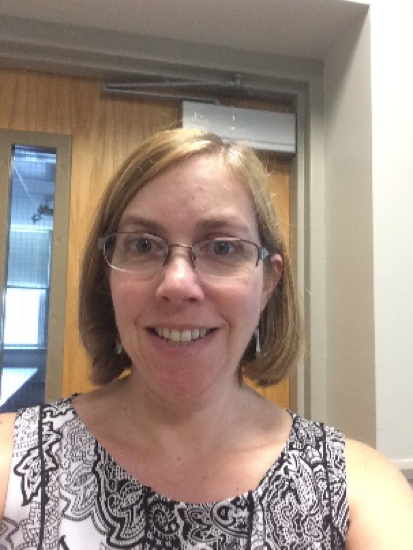
PROFESSIONAL
- School Based Clinician, Kennebec Behavioral Health, Waterville, ME (2014 - 2015)
- Clinical Program Manager, Maine Tobacco Helpline, MaineHealth, Portland, ME (2013 - 2014)
- Coordinator of Performance Improvement and Regulatory Affairs, Spring Harbor Hospital, Westbrook, ME (2007 - 2013)
- Adjunct Instructor, Behavioral Health and Human Services Program, Southern Maine Community College, South Portland, ME (2010 - 2013)
- Supervisor and Case Manager for Sweetser/DHHS Clinical Case Management Program and Sweetser's York County Homeless Youth Program, Sweetser, Saco, ME (1999 – 2003)
- Crisis Unit Clinician, Sweetser, Saco, ME (1997 – 1999)
- Fair Harbor Shelter for Girls, YWCA, Portland, ME (1996 – 1997)
EDUCATION
- Ph.D. Social Work, University at Albany (SUNYA), Albany, NY (2006)
- Masters of Social Work (MSW), University of New England, Biddeford, ME (1994)
- Bachelor of Arts (BA) in Psychology with minor in Rehabilitation, University of Maine at Farmington, Farmington, ME (1992)
PROFESSIONAL AFFILIATIONS
- National Association of Social Workers (NASW) 1993 – Present
- Currently NASW Maine Board Vice President (2015 – 2017)
- Previously Branch A Chair (2010 – 2012), Board Secretary (2013 – 2015), Member of the Annual Conference Committee/Continuing Education Committee (2010 – Present)
RESEARCH INTEREST
- Best practices for working with children in foster care who have experienced abuse and trauma
- Communication and support for individuals with Alzheimer's disease and their families
PERSONAL
I enjoy spending time with my family, reading books, taking road trips and getting the most out of summers in Maine.
TEACHING PHILOSOPHY
In my role as an instructor I want to bring out in each student an excitement for what a future career in the mental health field will hold. The classroom should provide a safe environment where we can share our life experiences that make us each unique individuals. There is so much we can learn from each other. We each have strengths that help us to move forward and improve every day. It is important to look for those strengths in each of us and in the future clients you will service. By giving students a voice in the class, not only do the students benefit by learning from each other, each person's individual experiences will enrich the course material by making it more real. I work hard to come to class prepared and expect the same of the students in my classes. You each need to take responsibility for your own learning by staying caught up in your readings and assignments. The class time will be used to take the concepts and apply them to real life situations. The classroom is a place for students to learn skills, apply concepts and consider how that will integrate into their future roles in the field of mental health.
I focus on developing a curriculum around student interests that stimulates the passion to learn. One way to take learning in a direction relevant to student interest is by inviting student dialogue about the readings and lesson content. The goal is to encourage students to generate ideas and set goals that make for much richer activities than I could have created or imagined myself. When students have ownership in their learning activities, they are motivated to work hard and master the skills necessary to reach their goals. Each semester I learn more about myself, continue to look at my course structure and content to improve, and grow in my own learning as a person, a teacher and a social worker. I look forward to helping you grow as a person, a student, and a future helping professional.